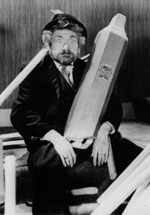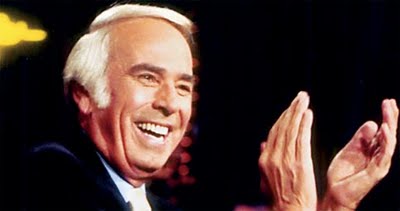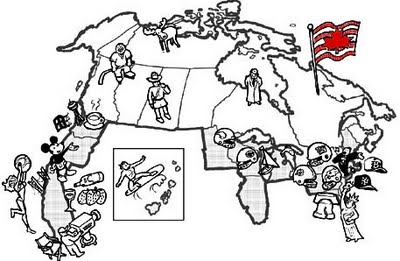|
|
An hour (actually less, commercials have been removed) with Stephen Rebello, author of Alfred Hitchcock and the Making of Psycho. This is preceded by the end of an interview with Don Drysdale. This was a “Best Of” rebroadcast, which accounts for some of the unusual edits.
Why post the end of the Drysdale interview? Because the beginning might show up someday. That’s what happened with a previous program posted here with guest Anthea Disney, editor of TV Guide; that program will be updated shortly with the missing segment.
You can also see an old Tomorrow Show of TS with Hitch on YouTube.
Listen or download.
Gosh – I had forgotten that Tom was also broadcast on WABC-AM from New York City. (I was actually closer to WICC, which was and is right across the Long Island Sound in Connecticut). It was a source of annoyance to Tom that during the summer, WABC bumped him – frequently – for Yankees baseball.
I mention this because Tom’s guest is Curt Smith, author of “Voices of The Game,” about the great radio broadcasters who called the play-by-play. It’s Tuesday, June 30, 1992.
You can hear lightning making lots of noise in the AM band… I guess there was no Yankees game that night.
Listen or download.
Visually, in one of Hal Roach’s Max Davidson shorts, maybe. That’s Max at left.
But ethnomusicologist Henry Sapoznik, of the nonprofit Living Traditions, which is releasing “Cantors, Klezmorim & Crooners 1905-1953” ($25, JSP Records/Living Traditions) says that devotees of LeRoy Shield’s later film music (including the wonderful background music heard in the 1930’s Hal Roach shorts) can trace Shield’s musical thematic development in his earlier work as a conductor/arranger for Jewish recordings (among others) at Victor. On the the CD, which will be released to mark KlezKamp’s 25th anniversary and a festival of Yiddish music and art set for December 23-29, there’s a track that features Yiddish Theater singer Ellie Casman backed by LeRoy Shield’s RCA band.
Sapoznik, a five-time Grammy winner for early folk and country music productions, who also received a Peabody Award for his “Yiddish Radio Project,” was misquoted and misinterpreted in a poorly edited interview that popped up on the ‘net and raised a few eyebrows among Shield admirers (and this post has been revised to reflect the proper context for his remarks).
The raised eyebrows had to do with the fact that Shield was Irish. Which is not to say he didn’t want to be perceived as Jewish… in fact, the reverse is true. Steve Cloutier, who runs the Leroy Shield website learned that “…Leroy changed his name from “Shields” to “Shield” [because he thought it] would be advantageous in Hollywood if his name sounded more Jewish than Irish.” Shield/Shields changed the name quite a bit – Roy Shield was yet another variation he used.
Sapoznik suggests Shield’s early work, including the Yiddish recordings for RCA, were an influence Shield brought to [the Hal Roach] movies. Sapoznik observed, “The cantorial tradition,” so central to Yiddish recordings, “was the key DNA of Eastern European Jewish music. Everything — klezmer, Yiddish theater, folk songs — that’s what links them all together.”
He makes a point. It would be great fun to hear more of Shield’s early work. Maybe we can convince a klezmer band to cover the Hal Roach tunes, but in the meantime, I’m going to check out the “C,K, and C” CD asap.
It’s a slimefest! It’s a deathfest! It’s about as low as the Tom Snyder Radio Show would ever go! And somebody… let’s hope not Tom… thought the program was good enough for a rerun!
Gravelly-voiced John Austin (author of More Of Hollywood’s Unsolved Mysteries) rattles off the deaths and the dirt at breakneck speed. Seems he knew everyone and has the low-down on every Hollywood scandal and murder ever.
While I was listening, I was thinking, “Boy, I’ve already heard all of these, and I probably know this stuff as well as this guy does, but I wouldn’t talk about it in polite company, let alone on the radio.” At that moment, a caller asked which Hollywood star had a restaurant and was mixed up with the mob. Austin is at a complete loss. No idea. I’m here thinking “That guy is asking about Thelma Todd, her Sidewalk Cafe, and her unfortunate connection to Pat Di Cicco, connected in turn to Lucky Luciano’s mob. I guess I do know this stuff better than this guy does.”
Later in the show, Tom brings up Thelma Todd… and Austin has the whole story. He’s wrong, but he has the whole story.
P.S.: does Austin use a racial epithet just before one of the commercials?
Listen or download.
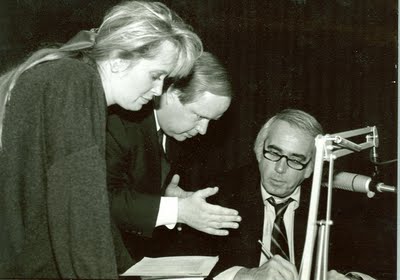 May 1, 1992. May 1, 1992.
This is Tom Snyder’s Radio Show from the day after the worst of the riots. A semblance of order has been restored in Los Angeles and wild-eyed fears of country-wide “race warfare” seem to be diminishing.
 At right: A cross section of wood with veneer finish. Caption: “Many man-made boards are ugly to look at and veneers (very thin layers of real wood) can be stuck to them to make them look solid…” The country is left to reflect upon the durability and thickness of the veneer that makes civil society look solid… and how deep and how ugly it might be just below that surface.
Listen or download.
April 30, 1992. I’ve been looking for this edition of The Radio Show for quite some time – and here it is.
Tom Snyder broadcasts live from Los Angeles as the city suffers through the violence and rioting that follows the acquittal of the policemen who beat Rodney King. If you don’t have a sense of what that day was like, you will after you hear this recording.
It is an historic Tom Snyder program, incredible in so many ways, not the least of which is Tom’s insight, compassion and ability to convey the horror of what’s taking place while remaining, as ever, the consummate host and reporter. Forget Tom’s Charles Manson interview, essentially just a freak show with a person who’s insane – this may be Tom Snyder’s most impressive achievement, as he works to make sense of a city gone insane.
This is history – a sad day in the history of the country – and it happened less than twenty years ago. It is well worth your time.
As the program begins, the rioting is spreading throughout the city, phone lines are down, and Tom announces that he may have to end his broadcast prematurely and “send it back to New York.” What follows… seems unreal.
At the very end of Tom’s interview with one of the jurors is a bizarre moment of unbelievable, unintentional gallows humor which escapes both “Madam Juror” and Tom, though a caller later points it out. Listen carefully to the last sentence spoken by “Madam Juror.”
This is a partial program which contains the full first hour and the majority of the second hour, with most commercials and local segments deleted. I’ve left portions of newscasts in, as well as a few commercials which seem to provide unintentional oblique or ironic commentary.
Listen or download.
Abortion. That’s the topic that begins this program, which offers much insight into Tom’s personal opinions upon religion and the notion of a secular state. Michelle McKeegan is the guest for the first hour, then phones, then tennis star Tracy Austin.
This is the program where I decided I had had enought of Mr. Bullock, so his commercial as heard here is not exactly as aired. This episode was broadcast at the time of the Republican convention in Houston. The guest for hour two is Rand LeBon, reporting for KLIF in Dallas, who’s in Houston covering the Republican National Convention.
Tom has a memorable problem pronouncing “Scud Stud” Arthur Kent’s name.
Tom announces that “The Radio Show” will end in November.
Listen or download.
 So there’s this guy in Canada who wants to buy a 16mm movie that I put up for auction on eBay. The listing includes information about who can (and cannot) bid. The listing states, in large type, “This auction is open to U.S. bidders only.” So there’s this guy in Canada who wants to buy a 16mm movie that I put up for auction on eBay. The listing includes information about who can (and cannot) bid. The listing states, in large type, “This auction is open to U.S. bidders only.”
You’re saying, “Don, are you nuts? Why would you, a unidexter, wanting to get the highest price for an item, exclude any bidders, let alone the entire rest of the world?”
And you know, that’s what I like about you, gentle reader.
You’re always looking out for my best interests. You’re always ready to gently question my judgment, because you’ve seen how far wrong it can go. Bless you for thinking that.
To begin at the beginning: a boring piece of trivia you’ve heard a million times: the longest undefended border in the world is the border between the U.S. and Canada.
Less well known, less trivial, but equally true, is that the U.S. and Canada also share the longest indefensible, incomprehensible set of shipping rules and regulations two countries have ever conspired to deploy.
What about the Universal Postal Convention, which both Canada and the U.S. endorse, I hear you saying.
I’ll never finish this story if you keep interrupting. Hesh up.
 Let me put it this way: If I send a film to Cawker City, Kansas, home of the world’s largest ball of twine… I get the special Media Mail rate (only $7.06 for 13 pounds). I put stamps on the package and wrap it with twine as my contribution to the 2010 Twine-A-Thon, the twine-winding picnic, cook-off and parade held the third Friday in August each year. And that, as they say, is that. Bingo-Bango-Bongo, as Mike Sexton says on World Poker Tour. Done deal. Let me put it this way: If I send a film to Cawker City, Kansas, home of the world’s largest ball of twine… I get the special Media Mail rate (only $7.06 for 13 pounds). I put stamps on the package and wrap it with twine as my contribution to the 2010 Twine-A-Thon, the twine-winding picnic, cook-off and parade held the third Friday in August each year. And that, as they say, is that. Bingo-Bango-Bongo, as Mike Sexton says on World Poker Tour. Done deal.
Ah, but let’s say I have to send a film to Chilliwack, in Canada, home of the largest neon sign in British Columbia at the time of its building.
 Forget Media Mail. Cheapest available postage to Canada will be $40. And – I’m no longer just a seller – I’m an exporter! Forget Media Mail. Cheapest available postage to Canada will be $40. And – I’m no longer just a seller – I’m an exporter!
That means I will need a written customs declaration stating contents and value. If the parcel is a gift and worth less than sixty bucks, or not a gift and worth less than twenty bucks, no duties or taxes will be due from the purchaser.
What this means, in practice, is that Canadian purchasers will suggest mail fraud as the optimal way to go with the customs declaration. Ah, Canadians. They say “oot” for “out,” they love their hockey and their beer, and they rank number one in the world in the receipt of gifts worth sixty dollars or under.
Now wait, you say…
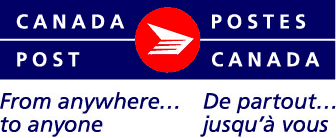 I thought I told you to hesh up. I thought I told you to hesh up.
Canada Post is going to levy an additional $5 handling fee for taking charge of the parcel once it reaches the Great White North. What about that?
 No Canadian has yet suggested that I could potentially outwit their dimwit government once again by mailing the parcel from Toronto, but it’s just a matter of time until someone does. (This would involve mailing from Toronto, Kansas, the “Prairie Hay Capital of the World,” in the hope that a Toronto postmark of any kind might slip by Canadian authorities, circumventing the five buck fee). No Canadian has yet suggested that I could potentially outwit their dimwit government once again by mailing the parcel from Toronto, but it’s just a matter of time until someone does. (This would involve mailing from Toronto, Kansas, the “Prairie Hay Capital of the World,” in the hope that a Toronto postmark of any kind might slip by Canadian authorities, circumventing the five buck fee).
While I’m pondering the possible seqellae of defrauding the Canadian government, I note that tariffs are separate and distinct from duties and/or taxes. This would be a problem if there were no 325 page .pdf to help me figure out precisely what I owe.
 Bear in mind that all of the foregoing is moot if the parcel contents fall under revised provisions of the North American Free Trade Agreement (NAFTA) designed to reduce or eliminate tariffs on various goods imported from the United States and Mexico into Canada. Specifically, tariff acceleration (meaning reduction) has been proposed for “black and white motion picture film of a width not exceeding 16mm and of a length exceeding 14 m.” If the ‘m’ means minutes, old cartoons could be sent tariff-free to Canada, unless they were in color. If that ‘m’ means meters, the length of the film, converted to feet, assuming 16mm at 24fps, would burn up 36 ft. per minute, meaning that only a black and white television commercial could qualify as tariff-free.
So… as I said… in large type… “This auction is open to U.S. bidders only.”
The auction opens. The e-mail questions begin to roll in. Here’s the text of the one that concerns us:
Would you be willing to ship this item to Canada? If you would be willing, what would be your price for shipping this item to Calgary, Alberta, T2E 0E8 via USPS? Thank you.
I consider the answer “Yes! One Million U.S. Dollars.”
I consider the answer “No. That question is addressed in the listing. What part of “U.S. Bidders only” is confounding you?”
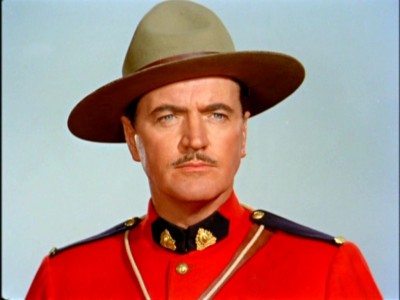 I ultimately settle for a third, more polite reply: “I’m sorry, but the auction is open to U.S. Bidders only.” I ultimately settle for a third, more polite reply: “I’m sorry, but the auction is open to U.S. Bidders only.”
I mean, this is the country that gave us Michael J. Fox, Leonard Cohen, Joni Mitchell, Neil Young, Jim Carrey, Mike Myers and Sgt. Preston of the Yukon. Even when you figure in grievous insults like Paul Anka, Howie Mandel, and William Shatner, Canada still deserves to be let down easy and gracefully in eBay auctions.
And so, that’s that. Sorry, you can’t bid. Bingo-Bango-Bongo. Or so I think.
The auctions end. People pay, movies get shipped. Then, I receive this email:
I am in SO much trouble! I was supposed to bid on this item for my brother in Canada: 16mm Disney TECHNICOLOR – THE MOONSPINNERS Hayley Mills, but for some reason I ended up bidding on “Whistle Down the Wind”, which he was also interested in, but didn’t want me to bid on. I WILL pay for “Whistle Down the Wind”, but if, for ANY reason, the winning bidder of “The Moonspinners” does not want to purchase it, I know my brother would much rather have it. He’s the one who asked if you would ship to Canada. Oh, I am in SO much trouble!
So here, we have a good sister, a great sister, probably, who’s trying to help her brother get around the “U.S. bidders only” problem on eBay by placing bids from the good ol’ U.S.A. on his behalf.
 The brother can be forgiven, I suppose. After all, this is the film containing Hayley Mills’s foxiest role: the sensuous, not-quite-innocent Nikky Ferris of The Moon-Spinners, the movie that pushed the limits of Disney live-action films into PG-rated territory with Hayley’s smoldering, sensual, first on-screen kiss with the hunky Peter McEnery, who had previously been utterly convincing as Dirk Bogarde’s gay love interest in Victim (1961). The brother can be forgiven, I suppose. After all, this is the film containing Hayley Mills’s foxiest role: the sensuous, not-quite-innocent Nikky Ferris of The Moon-Spinners, the movie that pushed the limits of Disney live-action films into PG-rated territory with Hayley’s smoldering, sensual, first on-screen kiss with the hunky Peter McEnery, who had previously been utterly convincing as Dirk Bogarde’s gay love interest in Victim (1961).
The charms of The Moon-Spinners notwithstanding (that first kiss takes place in a hearse) we now face a developing international trade incident.
Twice, the American sister wails about how much trouble she is now in, due to the fact that she bid on the wrong film. She is an innocent bystander, caught in a swirling, never-ending nightmare. She writes of her problem with raw emotion, bravely saying she will pay for her winning bid, but… oh, she is in SO much trouble.
Well, Mr. Canadian bidder, we are Americans, dammit. If you prick us, do we not bleed? If you tickle us, do we not laugh? If you poison us, do we not die? Fear not, fair lady. Fear not, fellow American. For if I can solve your trouble, will I not do so?
I forward the entire text of the “I’m in SO much trouble” e-mail to the person who was the ‘underbidder’ on the film, then said:
[The American sister of the Canadian] will take the print and pay for it, but if you are interested in purchasing the print for your final bid, let me know, and I’ll let her know. Just to be clear, you’re under no obligation to purchase the print – I’m just making the offer. I’d rather see the print go to someone who wants it!
 The underbidder accepts the ’second chance offer,’ as such things are called on eBay. The underbidder accepts the ’second chance offer,’ as such things are called on eBay.
I sacrifice a small portion of the final sale price, but think how good I’ll feel, how proud I’ll be, when I can write back to the sister to let her know that single-handedly, I have rescued her from the dire consequences of her tragic mistake:
I went back to the underbidder on this item, and he agreed to purchase the film at his high bid. So you’re not in trouble at all any more on this purchase… you’re totally off the hook.
Wow, my good deed for the day. My mitzvah.
The feeling of exhilaration continues until this e-mail shows up:
Oh, no no! Since I didn’t get Moonspinners, my brother DOES want this film! It’s just that if the winning bidder on Moonspinners doesn’t want it, my brother surely DOES, in which case THIS film can go to the underbidder! Oh, what a mess I’ve made! I’m so sorry!
Insert your favorite expletive here. I did.
“No good deed goes unpunished.” I remember the first time I heard someone say that. I thought they had made a mistake, which is to say I didn’t get the joke.

I responded with a request for agreement to cancel the transaction on the item, in order to set the eBay record and bookkeeping straight.
The response:
I got the request to cancel the transaction on this film. I still DO want to get it, unless Moonspinners has become available. Have I made too much of a muddle of this? I must blame it on chemo-brain. I am SO sorry.
The counter-response:
Yes, it’s a dreadful muddle at this point. By trying to help you when it seemed as if you were going to have to pay for an unwanted item, I now find myself in an untenable position, and would greatly appreciate, in the spirit of sympathy and understanding that created this mess, your agreement to the transaction cancellation.
 John Diefenbaker, Canada’s 13th Primer Minister, famously said “I am a Canadian, free to speak without fear, free to worship in my own way, free to stand for what I think right, free to oppose what I believe wrong, or free to choose those who shall govern my country.” John Diefenbaker, Canada’s 13th Primer Minister, famously said “I am a Canadian, free to speak without fear, free to worship in my own way, free to stand for what I think right, free to oppose what I believe wrong, or free to choose those who shall govern my country.”
Fine with me, Canadians. As long as you know you’re not free to bid on my eBay auctions.
And by the way, I’m STILL waiting for that transaction cancellation, and I’m going to act as if I never saw the adjective ‘chemo-brain,’ which… which I’m going to act as if I never saw.
Can the completion of my transformation from hero to villain be far away? They’ve penciled-in an exploratory initial conference for me at mustache-twirling school.
Oh, I am in SO much trouble!
 This is mostly a “Nightside” hour of listener calls, but it does contain the end of an interview with Sarah Purcell. The reason so many segments are joined in progress is the haphazard nature in which cassette tapes were either saved or discarded. (I used to tape The Radio Show and listen to it in the car on the following day). Sarah Purcell co-hosted “A.M. Los Angeles” with Regis Phibin from ‘75 to ‘83.
In this clip, we learn about Tom’s primary source material vis-à-vis the facts of life; we hear Tom’s warning about how not to visit Disneyland; and some comments about the impending last episode of Johnny Carson’s Tonight Show
Listen or download.
I received an interesting e-mail today from someone who had seen a video I posted to YouTube some time ago. It probably was embedded in one of my posts about Soupy Sales, who, sadly, passed away last week. This blog usually gets 200-300 hits per day. On Friday, the number of visitors increased tenfold. That’s a tribute to Soupy, of course, that has nothing to do with me.
Anyway, here’s the e-mail:
…I have a video that was recorded from television back in 1978……the guest was [someone] I used to work for. Upon [that person's] death, I created a memorial w/photos and such for his family, and also put the interview [into] this. I’d like to put it on YouTube, and have no idea… if I do this, will it be OK? Just a regular guy trying to share this w/the world…..your thoughts? Thanks.
And here’s my reply:
YouTube requests that anyone who posts a video on their site be the person who created the video or owns the rights to the video. Everyone ignores this, most especially YouTube itself, which, once you subtract the funny home videos, is an empire built on copyright infringement. Don’t listen to anyone who says “it’s OK,” because it’s not. But YouTube usually looks the other way.
I think many people who post to YouTube, myself included, simply want to share something they have that others might like to see. Legally, it makes no difference whether you post something in order to make money or you’re just looking to share. But reasonable people can draw a distinction between something shared just for the pleasure of doing so… versus something posted in an attempt to capitalize on someone else’s creative work.
YouTube actually sent me an e-mail today about the Soupy video. Incredibly, here’s what it said:
Your video has become popular on YouTube, and you’re eligible to apply for the YouTube Partnership Program, which allows you to make money from playbacks of your video.
Once you’re approved, making money from your video is easy. Here’s how it works: First sign into your YouTube account. Then, complete the steps outlined [at a web address]. Once you’re finished, we’ll start placing ads next to your video and pay you a share of the revenue as long as you meet the program requirements. We look forward to adding your video to the YouTube Partnership Program. Thanks and good luck!
Wow! If the video was mine, I might take them up on their offer. But I won’t do that in this case, because there’s no reason I should profit from something I didn’t create. I’m simply sharing something I like; I’m saying have a look, isn’t this great? Oh, I’ll make a few comments, but really, this has nothing to do with me, and to turn it into a source of income would be wildly disrespectful to the memory of Soupy Sales – an entertainer I loved.
So what am I saying? I once asked myself exactly that. I spent a couple of hours trying to succinctly capsulize my philosophy on this issue, and the result appears at the bottom of every page of this blog:
This non-profit, ad-free blog seeks to promote interest in, and enhance the value of, any and all copyrighted properties (appearing here in excerpt-only form) for the exclusive benefit of their respective copyright owners.
In other words, if my clip reminds you how much you love Soupy… go out and buy his autobiography… or get someone to re-release the DVD’s that have shot up to over 200 dollars on Amazon over the last couple of days… or write a letter to someone urging the official release of the full TV shows from Soupy’s personal archive as well as the movie “Birds Do It,” which I’ve never even been able to see!
I’m not a lawyer, and I don’t think anyone would object to your posting your [video], which is not to say that someone might not do precisely that. It sounds like sharing is what you have in mind, and – at least for those of us who post videos – that’s what YouTube is all about. Of course, in sharing our videos, YouTube makes money, none of which it forwards to the copyright owners.
- Don
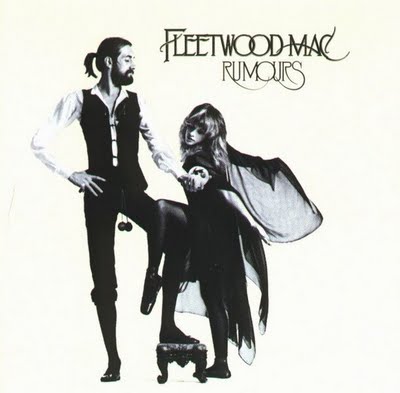 I had another interesting communication from YouTube recently: I posted a birthday video – a picture montage I had put together for a party. For a soundtrack, I used a Fleetwood Mac song. I had another interesting communication from YouTube recently: I posted a birthday video – a picture montage I had put together for a party. For a soundtrack, I used a Fleetwood Mac song.
That, YouTube flagged instantaneously and immediately eliminated, pointing out that Warner owns the rights to that song. True enough. But wouldn’t it be nice… wouldn’t it be appropriate… wouldn’t it be smart for YouTube to strike a bargain with the copyright holders to the effect that when YouTube detects one of your songs being used as a soundtrack, it will ask the person who posted it to pay a minimal, non-commercial, YouTube-only fee of a couple of bucks, a fraction of which YouTube would keep as a commission? I certainly would have been happy to pay a fee rather than post a soundless video.
At a time when the music industry needs to develop new streams of revenue, it seems only logical. It would take hard work to hammer out an agreement; it would be time-consuming and legally complicated. But here we have history repeating itself: the entertainment companies fought downloading, then gave away the store when Steve Jobs came up with iTunes. Instead of offering the answer “you can’t do that,” the rights owners should come up with a plan where you can do that, in a way that directs revenue to the artists and organizations that deserve it.
Or am I missing something? What do you think?
|
Isn’t Life Terrible? "Isn't Life Terrible" is a Charley Chase short from 1925. The title was derived from a 1924 D.W. Griffith film, "Isn't Life Wonderful?" Other Charley Chase film titles that ask questions are "What Price Goofy?" (1925), "Are Brunettes Safe?" (1927), and "Is Everybody Happy?" (1928). Chase abandoned his titles with question marks for titles with exclamation points during the sound era.
----------------------------------
Isn't Life Terrible moved from Blogger to WordPress in May of 2010. As a result, some links in older posts were broken. If you encounter one, let us know by leaving a comment on the post with the broken link, and we'll move it to the top of our "to-fix" list.
----------------------------------
This is a non-profit, ad-free blog that seeks to promote interest in, and enhance the value of, any and all copyrighted properties (appearing here in excerpt-only form) for the exclusive benefit of their respective copyright owners.
----------------------------------
Links to audio files go to a page where you can listen with a built-in player and/or download the file. If you want to continue to browse the internet while listening, don't close the page - open a new browser window.
|


